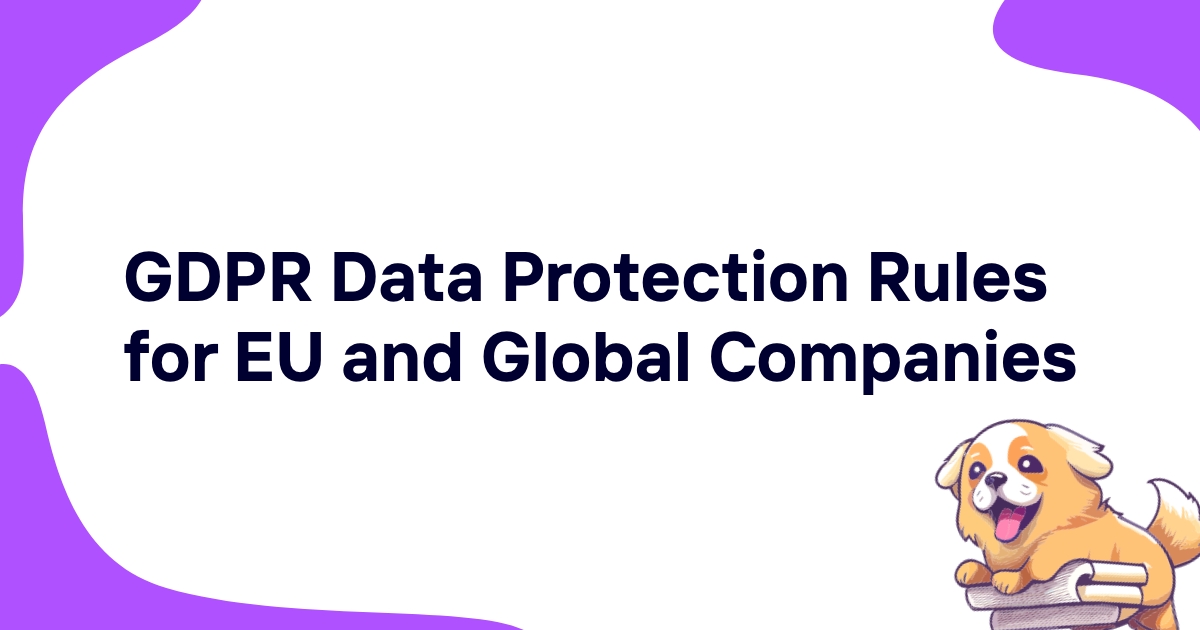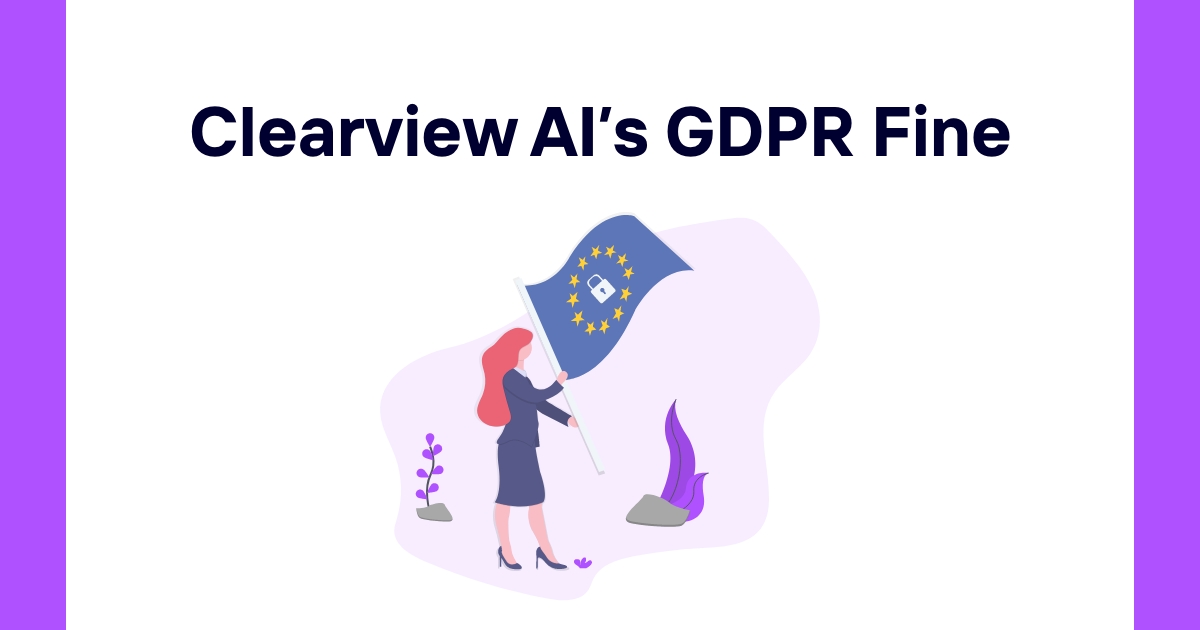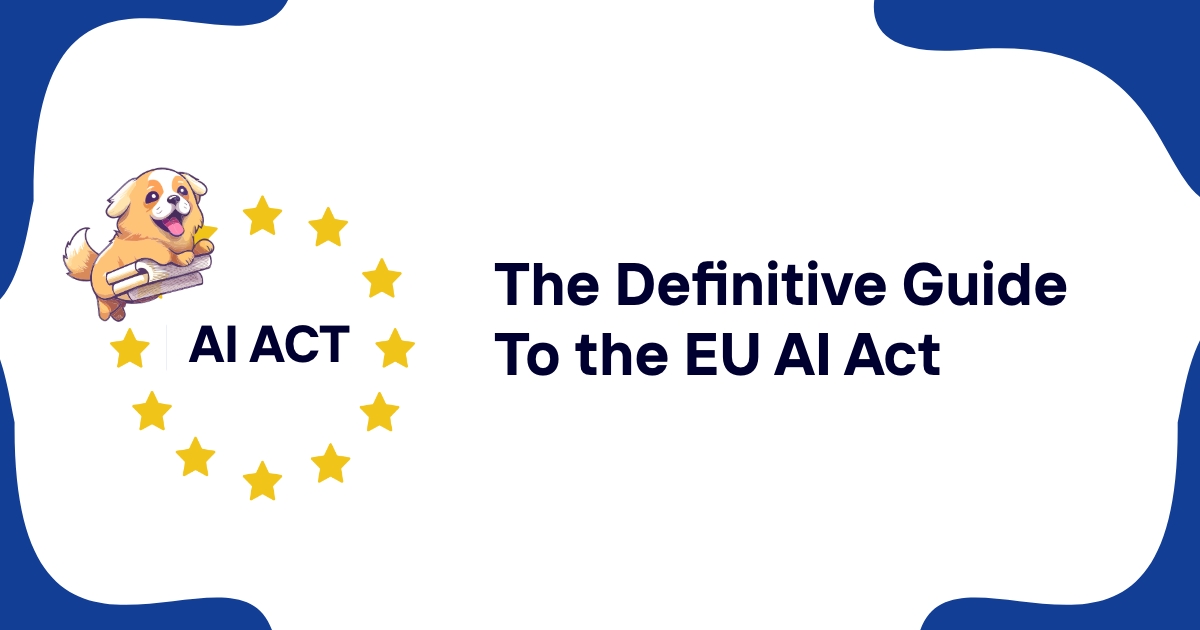In a landmark decision that's sending shockwaves through the tech world, Italy's data protection authority has slapped OpenAI with a hefty €15 million fine for violating the General Data Protection Regulation (GDPR). This penalty against the creators of ChatGPT isn't just another slap on the wrist – it's a wake-up call for AI companies everywhere.
I've been following this case closely, and let me tell you, it's a doozy. As someone who's been neck-deep in GDPR compliance for years, I can't help but see this as a turning point in how we approach data privacy in the age of AI. So grab a coffee (or a stiff drink, depending on how seriously you take GDPR), and let's dive into what this means for the future of AI and data protection.
Table of Contents
- The OpenAI GDPR Violation: What Happened?
- Breaking Down the €15 Million Fine
- Key GDPR Principles Violated by OpenAI
- Implications for AI Companies
- Steps AI Companies Should Take for GDPR Compliance
- The Role of Data Protection Authorities in AI Regulation
- Balancing Innovation and Privacy in AI Development
- The Future of AI Under GDPR
- How GDPR Compliance Software Can Help
The OpenAI GDPR Violation: What Happened?
Let's start with the basics. OpenAI, the company behind the wildly popular ChatGPT, found itself in hot water with Italy's Garante (their data protection authority). Now, you might be thinking, "Italy? Really?" But don't underestimate the Garante – they've been at the forefront of AI regulation in Europe.
The crux of the issue? OpenAI was accused of processing personal data without a proper legal basis. In other words, they were playing fast and loose with people's information to train their AI models. It's like they were throwing a party with everyone's data and forgot to send out invitations (or get permission).
But wait, there's more! The Garante also called out OpenAI for:
- Not notifying them about a security breach in March 2023
- Failing to implement proper age verification mechanisms
- Lacking transparency in how they inform users about data processing
I mean, come on OpenAI, GDPR 101 here!
Breaking Down the €15 Million Fine
Now, €15 million might sound like pocket change for a tech giant, but it's actually a pretty big deal. Here's why:
- It's one of the largest GDPR fines specifically related to AI
- It sets a precedent for how data protection authorities might handle AI companies in the future
- It's nearly 20 times OpenAI's revenue in Italy during the period in question (ouch!)
But here's the kicker – the fine isn't even the worst part. The Garante also ordered OpenAI to run a six-month-long public information campaign about how ChatGPT uses personal data. Talk about adding insult to injury!
Key GDPR Principles Violated by OpenAI
So, what exactly did OpenAI do wrong? Let's break it down:
-
Lawfulness, Fairness, and Transparency: OpenAI failed to properly inform users about how their data was being collected and used. It's like they were playing a game of data hide-and-seek, but forgot to tell anyone they were playing.
-
Purpose Limitation: The company was accused of using personal data for purposes beyond what was originally intended. Imagine lending your car to a friend for groceries, only to find out they used it for a cross-country road trip.
-
Data Minimization: There were concerns that OpenAI was collecting more data than necessary for their stated purposes. It's the digital equivalent of asking for your life story when all they needed was your name.
-
Accuracy: The AI models were generating inaccurate information about individuals. This is a big no-no under GDPR, which requires personal data to be accurate and up-to-date.
-
Storage Limitation: Questions were raised about how long OpenAI was keeping personal data. GDPR says you can't hold onto data forever – it's not a digital hoarding contest!
-
Integrity and Confidentiality: The security breach in March 2023 highlighted potential weaknesses in OpenAI's data protection measures. Cybersecurity isn't just for the movies, folks!
-
Accountability: OpenAI struggled to demonstrate compliance with GDPR principles. It's not enough to say you're following the rules – you need to prove it.
Implications for AI Companies
Now, if you're running an AI company, you might be breaking out in a cold sweat right about now. And honestly? You probably should be. This fine is a clear message that data protection authorities are taking AI regulation seriously.
Here's what this means for the AI industry:
-
Increased Scrutiny: Expect more investigations and audits of AI companies' data practices. It's time to get your GDPR house in order!
-
Higher Standards for Data Processing: The bar for what constitutes lawful data processing in AI development is being raised. No more cutting corners!
-
Need for Transparency: AI companies will need to be much more open about how they collect and use data. Transparency isn't just a buzzword anymore – it's a necessity.
-
Age Verification Challenges: Protecting minors' data is a big deal. AI companies need to figure out robust age verification methods that don't compromise user experience.
-
Global Ripple Effects: While this fine was issued in Italy, its impact will be felt globally. GDPR has teeth, and it's not afraid to bite.
Steps AI Companies Should Take for GDPR Compliance
Alright, enough doom and gloom. Let's talk solutions. If you're running an AI company (or thinking about starting one), here's your GDPR compliance to-do list:
-
Conduct a Data Audit: Figure out what data you're collecting, why you're collecting it, and how you're using it. Knowledge is power, people!
-
Establish a Clear Legal Basis: Make sure you have a valid reason for processing personal data under GDPR. "Because we want to" doesn't cut it.
-
Implement Robust Consent Mechanisms: If you're relying on consent, make it clear, specific, and easy to withdraw. No more sneaky pre-ticked boxes!
-
Enhance Transparency: Update your privacy policies and user communications. Make them clear, concise, and actually readable (novel concept, I know).
-
Develop Strong Data Security Measures: Implement encryption, access controls, and regular security audits. Treat personal data like it's your grandmother's secret recipe.
-
Create Data Breach Response Plans: Hope for the best, but prepare for the worst. Have a clear plan for detecting, reporting, and mitigating data breaches.
-
Implement Age Verification: If your AI might interact with minors, put robust age verification measures in place. It's not just about asking "Are you over 18?" and hoping for honesty.
-
Train Your Team: Make sure everyone in your company understands GDPR and their role in compliance. It's not just an IT problem – it's an everyone problem.
-
Document Everything: Keep detailed records of your data processing activities. If a data protection authority comes knocking, you'll want to show your homework.
-
Regularly Review and Update: GDPR compliance isn't a one-and-done deal. Make it an ongoing process of review and improvement.
The Role of Data Protection Authorities in AI Regulation
Let's talk about the elephant in the room – or should I say, the watchdog in the server room? Data Protection Authorities (DPAs) are stepping up their game when it comes to AI regulation.
The Garante's action against OpenAI isn't an isolated incident. We're seeing DPAs across Europe taking a more active role in how AI companies handle personal data. It's like they've collectively decided to crash the AI party and check everyone's GDPR invitations.
Here's what this increased involvement means:
-
Proactive Investigations: DPAs aren't waiting for complaints anymore. They're actively investigating AI companies' practices. It's like they've all binged on detective shows and are ready to solve some data privacy mysteries.
-
Guidance and Education: Many DPAs are publishing guidelines specifically for AI companies. It's their way of saying, "We know this is complicated, so here's a roadmap. No excuses now!"
-
International Cooperation: DPAs are working together across borders to tackle AI regulation. It's like an international data protection Avengers team-up.
-
Focus on Emerging Technologies: From machine learning to natural language processing, DPAs are getting up to speed on the latest AI tech. They're not just playing catch-up anymore – they're trying to stay ahead of the curve.
-
Balancing Innovation and Protection: There's a growing recognition that AI innovation is important, but not at the cost of individual privacy rights. It's a delicate balance, like trying to juggle flaming torches while riding a unicycle.
Balancing Innovation and Privacy in AI Development
Now, I know what some of you are thinking: "All these regulations are going to stifle innovation!" Take a deep breath. It's not all doom and gloom.
The goal of GDPR isn't to stop AI development in its tracks. It's about ensuring that as we push the boundaries of what's possible with AI, we're not trampling on people's fundamental rights to privacy and data protection.
Here are some ways AI companies can innovate responsibly:
-
Privacy by Design: Bake data protection principles into your AI systems from the get-go. It's like adding the flour when you're baking a cake, not trying to sprinkle it on top after it's done.
-
Data Minimization Techniques: Get creative with how you train your models using less personal data. It's like making a gourmet meal with just a few ingredients – challenging, but totally possible.
-
Federated Learning: This approach allows AI models to be trained across multiple decentralized devices without exchanging data. It's like having a book club where everyone discusses the book without actually sharing their copies.
-
Synthetic Data: Generate artificial data that mimics the statistical properties of real data without containing actual personal information. It's like using a stunt double for dangerous scenes in a movie.
-
Explainable AI: Develop AI systems that can explain their decision-making processes. It's not just about getting the right answer, but understanding how we got there.
-
Ethical AI Frameworks: Establish clear ethical guidelines for AI development in your company. Think of it as a moral compass for your algorithms.
Remember, innovation and privacy protection aren't mutually exclusive. It's about finding that sweet spot where cutting-edge technology and robust data protection coexist harmoniously.
The Future of AI Under GDPR
So, what does the crystal ball say about the future of AI under GDPR? Well, if I had to bet (and I'm not a betting man, unless we're talking about which programming language will become obsolete next), I'd say we're in for some interesting times.
Here's what I think we might see:
-
More Specific AI Regulations: The EU is already working on the AI Act. Expect more targeted regulations that address the unique challenges of AI and data protection.
-
Increased Collaboration Between Tech and Legal: AI developers and legal experts will need to work hand in hand. It's like a buddy cop movie, but with more algorithms and less car chases.
-
Rise of Privacy-Enhancing Technologies: We'll likely see more investment in technologies that allow for powerful AI while preserving privacy. It's the tech equivalent of having your cake and eating it too.
-
Global Influence: As with GDPR itself, the EU's approach to AI regulation will likely influence policies worldwide. It's like the EU is setting the data protection playlist, and everyone else is dancing to it.
-
AI Auditing and Certification: Don't be surprised if we see the emergence of AI auditing services and GDPR compliance certifications specifically for AI systems.
-
Ethical AI as a Competitive Advantage: Companies that can demonstrate strong ethics and GDPR compliance in their AI practices may gain a competitive edge. It's not just about being good – it's good business.
How GDPR Compliance Software Can Help
Now, I know what you're thinking: "This all sounds great, but how am I supposed to keep track of all this?" Well, my friend, this is where GDPR compliance software comes in handy. And no, I'm not just saying this because I work for ComplyDog (though I do think we're pretty great).
GDPR compliance software like ComplyDog can be a game-changer for AI companies trying to navigate these choppy regulatory waters. Here's how:
-
Data Mapping: These tools can help you visualize and understand your data flows. It's like having a GPS for your data – no more getting lost in the data labyrinth.
-
Risk Assessment: They can help identify potential GDPR risks in your AI processes. Think of it as a health check-up for your data practices.
-
Consent Management: Easily manage and track user consents. No more fumbling through spreadsheets trying to figure out who agreed to what.
-
Data Subject Rights Management: Streamline the process of handling data subject requests. It's like having a personal assistant for all those "What data do you have on me?" emails.
-
Breach Notification: In case of a data breach, these tools can help you quickly assess the situation and notify the relevant authorities within the required 72-hour window. Because when it comes to data breaches, time is definitely not on your side.
-
Documentation and Reporting: Generate the documentation you need to demonstrate GDPR compliance. It's like having a 24/7 compliance secretary.
-
Training and Awareness: Many tools include features to help train your team on GDPR requirements. Because let's face it, not everyone finds data protection as thrilling as we do.
Using a tool like ComplyDog can help you become GDPR compliant faster and cheaper. It's not just about avoiding fines – it's about building trust with your users and creating a solid foundation for responsible AI development.
In conclusion (see what I did there?), the OpenAI GDPR fine is a wake-up call for the AI industry. But it's not the end of the world. With the right approach, tools, and mindset, AI companies can navigate the GDPR landscape successfully. It's about finding that balance between innovation and protection, between pushing boundaries and respecting privacy.
Remember, in the world of AI and GDPR, it's not about being perfect. It's about making a genuine effort to respect people's data rights while advancing technology. And who knows? Maybe one day we'll have an AI that can handle GDPR compliance for us. Now wouldn't that be something?
Until then, stay compliant, my friends. And maybe give ComplyDog a try – your data (and your legal team) will thank you.

















